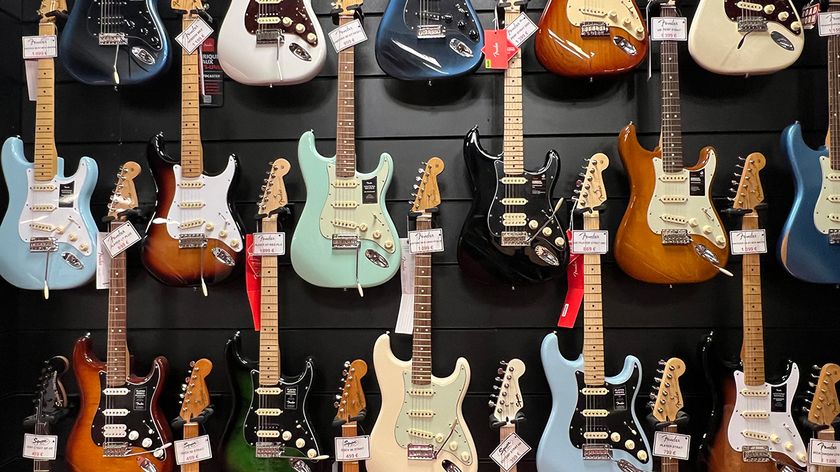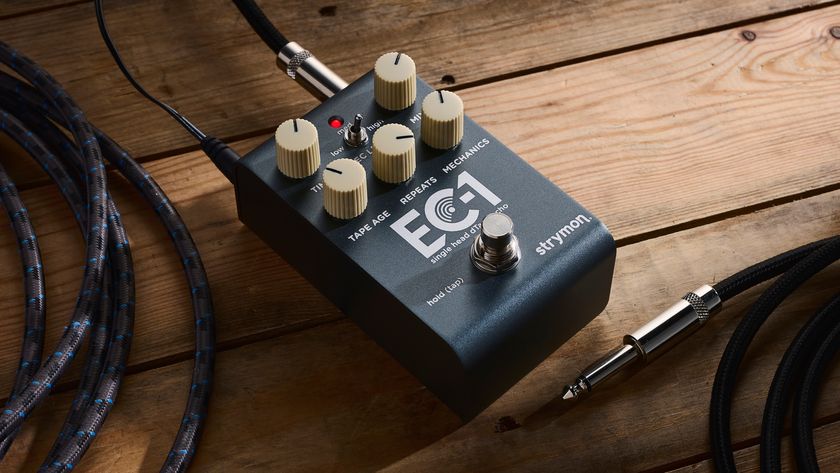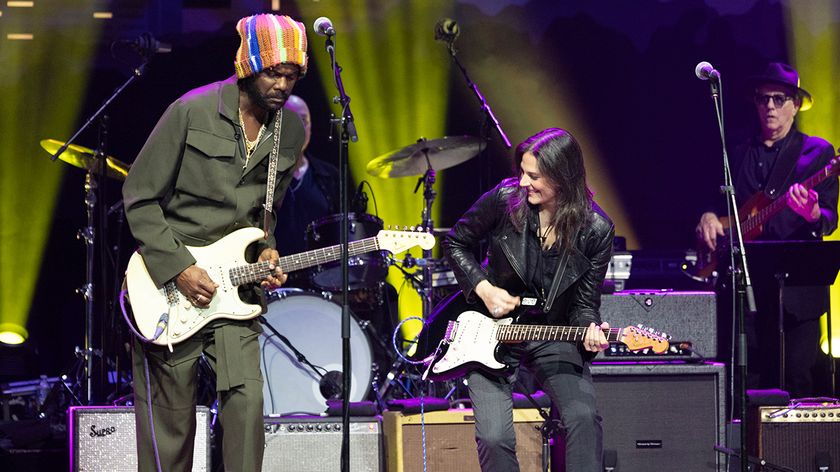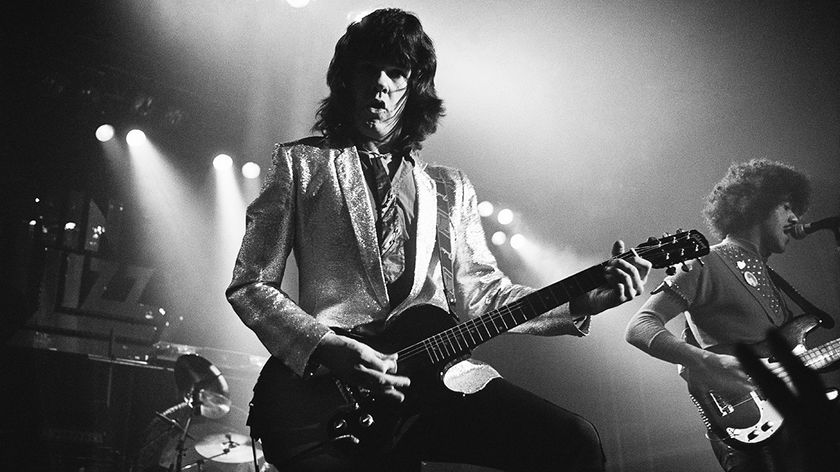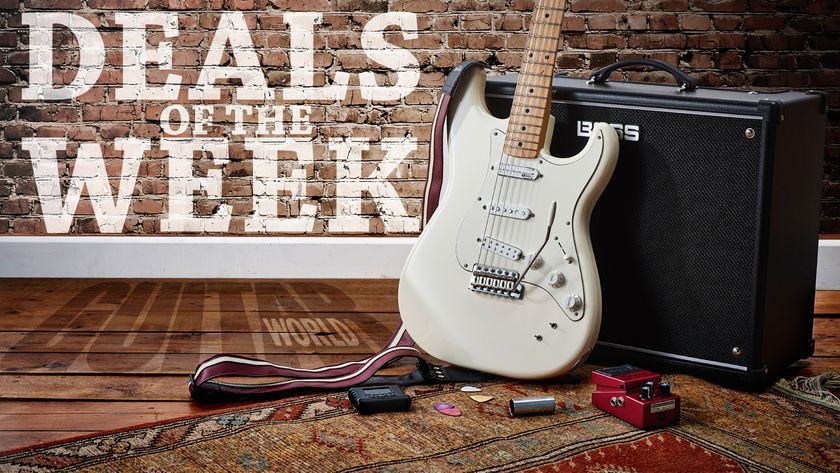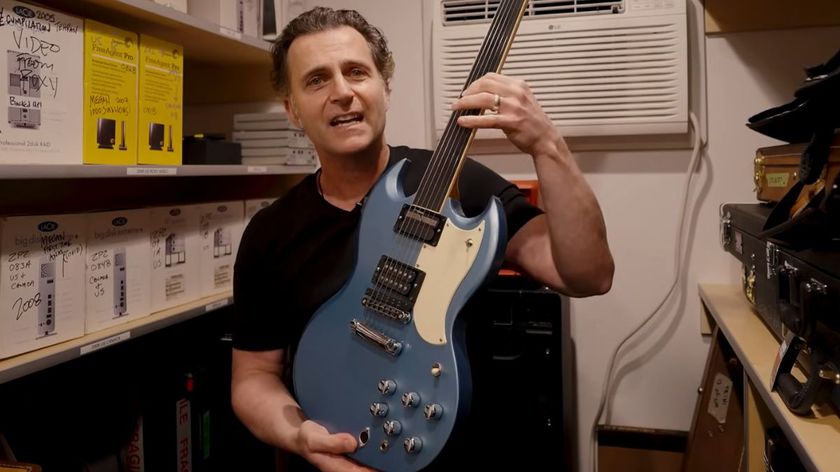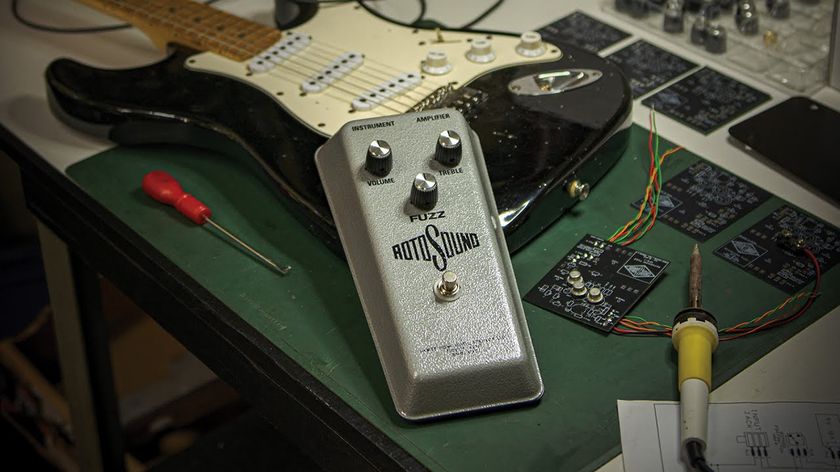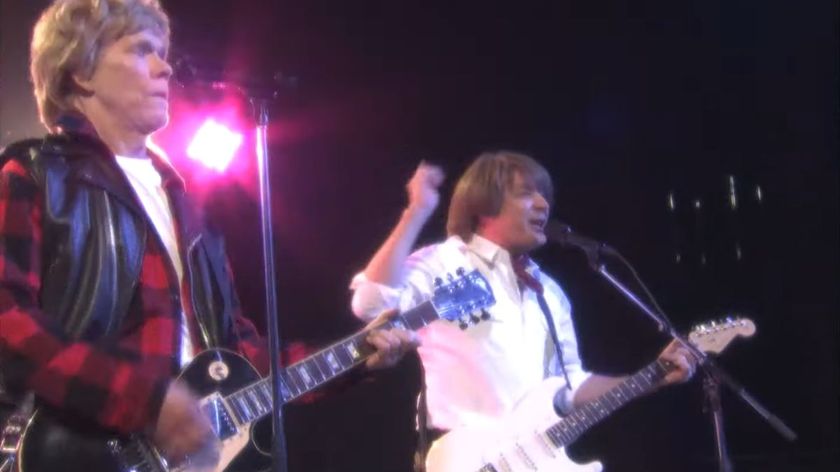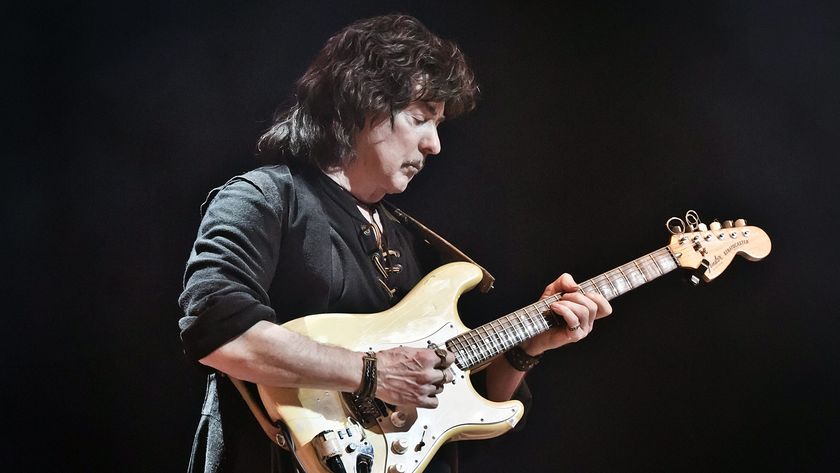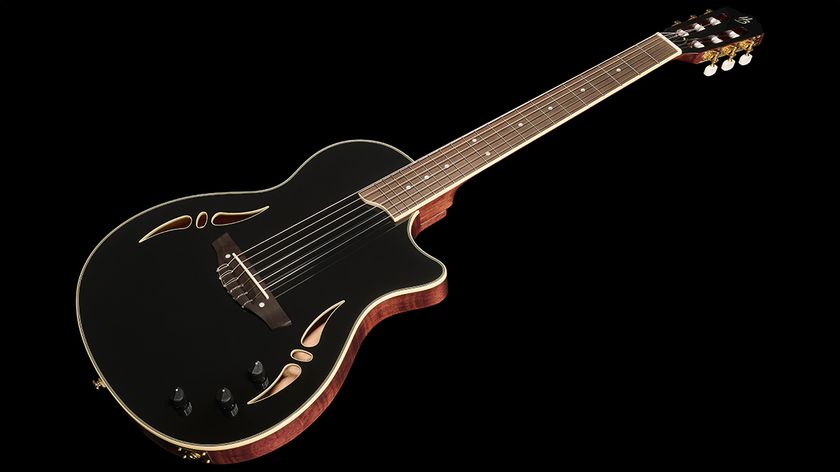TASTE OF CHAOS - Idiot Pilot Blog #1: Why Does the Guitar Rule Modern Music?

As musicians, it is our job to be scholars of music. We have been blessed with arguably one of the greatest jobs on earth, selected out of millions and millions of hopefuls through fate or talent or both, and put in a position where we have an outlet to express ourselves to an audience.
I feel I can say this to you all specifically because Guitar World is, essentially, a technical guitar magazine, much more than it is a general music mag. I can therefore assume that nearly everyone reading this will be a guitar player. And as a guitar player, or a songwriter of any kind for that matter, you have taken on a responsibility that you might not be aware of.
Your responsibility is that people are now going to listen to you, whether it is your roommate who gets super pissed that you jam out Phish covers at two in the morning or legions of ravenous fans during a sold out European tour.
What this means, especially to those of us in the rare position where we can actually afford to pay the bills in this incredible way, is that we owe it to the people listening, as well as to ourselves, to literally treat music as our field of study--to try and understand the facets of every genre, to understand why jazz sounds like jazz and why math rock sounds like math rock. In a perfect world, every metalhead worth their weight in shred should at least be able to tell you why--despite the fact that they are both filed in the jazz section of your local record store--Kenny G and Mile Davis are not one in the same.
Not that I know everything there is to know about songwriting or the guitar; far from it. When you start to think about how much there is to know about this beautiful little six-string instrument you will quickly realize that you could spend your whole life exploring and barely scratch the surface. The important thing then, isn’t in the knowing, but rather it’s the learning itself. Being a great musician is about a consistent search for knowledge.
Keeping that in mind I plan on starting from the very beginning and working our way forward. Forgive me if I jump around a bit, because I am not yet sure how many of these I am being asked to do. Who knows, maybe they will pull the plug after this bad boy, but for now I am going to start things off in the most basic way that I possibly can. There is a lot of ground to cover.
Alright, we are now going to go way back.
Get The Pick Newsletter
All the latest guitar news, interviews, lessons, reviews, deals and more, direct to your inbox!
The definition of the guitar is actually a pretty loose one, especially before the electric guitar came along. In the very ancient sense, a guitar was an instrument that had “a long, fretted neck, flat wooden soundboard, ribs, and a flat back, most often with incurved sides.” It is also true that in those days your choice of strings was slightly more limited than your standard steel strings or nylon strings, specifically to strings made from animal gut. Now THAT is fucking metal.
Anyway, the guitar that we now picture by today’s definition is an amalgamation of a lot of things, most apparently the Scandinavian lute, which was tuned differently but played in essentially the same way and had six strings. The guitar that we know today would be defined even more with the additions of one central sound hole under the strings and a less bulky neck by the early Latin Guitar, but the actual dimensions of our modern classical guitars were not created until the mid 19th century, in Seville, Spain.
The very first electric guitars were Rickenbackers, and the very first live performance of one was in 1932. Interestingly, there seem to be a lot of people who think that Mr. Les Paul invented the first electric guitar which is actually only half true, because at the time he was working on techniques of micing guitars. The Les Paul Guitar wasn’t actually created until the early 40s. As you already well know, music has never been the same.
I often think about what would have happened if somehow our history would have aligned things differently, and the guitar didn’t quite evolve to become the central instrument of most modern musical genres. We have gotten to the point where musicians are very smart in their use of auditory space, most bands have the bass holding the lower frequencies, accented by the kick drum. There is the drummer who provides the rhythm of the song and there is the vocalist who often handles the melody and the lyrics, which is the literal message in most cases.
The guitar fits perfectly into this setting because the frequencies that it provides are right there in the middle and that is how we end up with the usual guitar, drums, bass and vocals band combinations. Now this is a great setup, it’s simple and yet the options are almost endless. My only consideration is why the guitar? Why aren’t there more bands with bass, drums, piano and vocals? What about a string section that takes up those frequencies? A synth player? A banjo?
My conclusion lies in two crucial elements, the essence of why I believe the guitar is such a beautiful invention. Number one, the live setting. Because of the way the guitar is preformed, it is very easy to spectacularly present in a visual setting. The way that someone looks playing the piano is different from the way someone looks playing the guitar, not because the piano is any less emotional, but because the guitar allows the performer a huge amount of movement and physical expression.
Number two, the steps between the player, the guitar, and the sound that comes out at the other end are relatively minimal compared to other instruments. The sound of the guitar is the sound of a guitarist touching the string and creating vibration, that vibration is then amplified, whether it is from a hole in the body of your acoustic our a pickup that travels down a cable and into your Vox AC30. For instance, on a piano (and don’t think I am picking on pianos here, I love them too) the pianist produces the note by pressing a key that, in turn, uses a hammer to strike a string, which then resonates within the piano body.
The key of the piano is just one more degree of separation between the artist and the notes. The same goes for a synthesizer but to an infinitely larger degree. With the guitar, your ability to touch the string itself gives you complete control of the dynamics and even the pitch--you can bend the string slightly up or down or shake it halfway through. The expressive capabilities are enormous.
That concludes my first blog. Thanks for reading. And check back--next time I swear there will be less talk about lutes!
